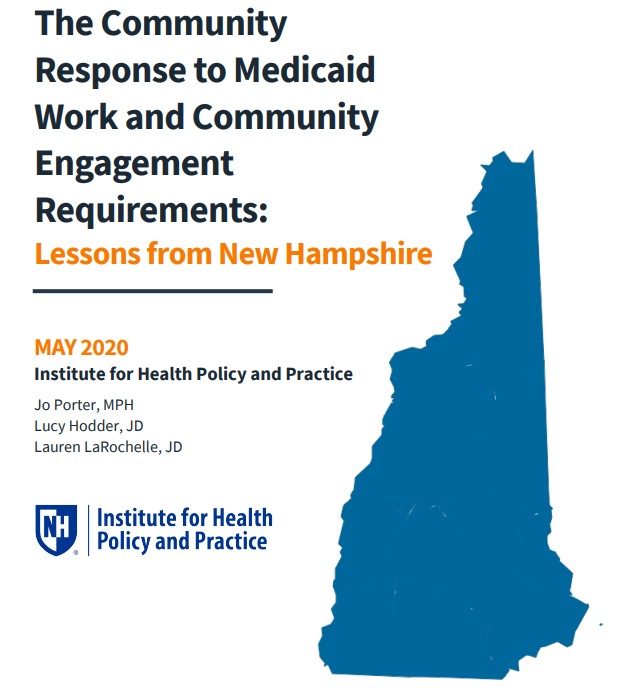
The preparation and implementation process for New Hampshire’s approved Work and Community Engagement Requirements program was costly and confusing for community organizations.
Posted May 11, 2020 By Josephine Porter, M.P.H., Lucy Hodder, J.D.
As early as January 2014, states took advantage of the federal government’s offer in the Affordable Care Act to provide substantial support to expand Medicaid health coverage to the newly eligible low income adult population. Some states also considered seeking new restrictions on eligibility, including work requirements, with a focus on adults in the expansion population. New Hampshire was one of few states that passed legislation to require work and community engagement activities as a condition of eligibility for its Medicaid expansion population. Because such requirements are not otherwise allowed under federal rules, the NH Department of Health and Human Services (NH DHHS) applied for and received waiver approval from the Centers for Medicaid and Medicare Services (CMS) to implement Work and Community Engagement Requirements ("WACER”). In March 2019, when the WACER went into effect, NH Medicaid covered 50,411 beneficiaries in the Medicaid expansion program, making up almost 30 percent of the total Medicaid-covered population.

Member
Josephine Porter serves as the Director for the Institute for Health Policy and Practice (IHPP) at the Univers. Read Bio

Researcher
Lucy Hodder is the director of health law and policy programs and a professor of law at UNH School of Law. Read Bio
The Vaccine Information Sharing and Education Resource (VISER) Network, funded by the Centers for Disease Control and Prevention (CDC), is a collaborative effort between AcademyHealth, the Association of Immunization Managers (AIM), and the National Academy of State Health Policy (NASHP) to provide immunization leaders with resources and promising practices for improving immunization rates for vaccine-preventable respiratory diseases across the lifespan.